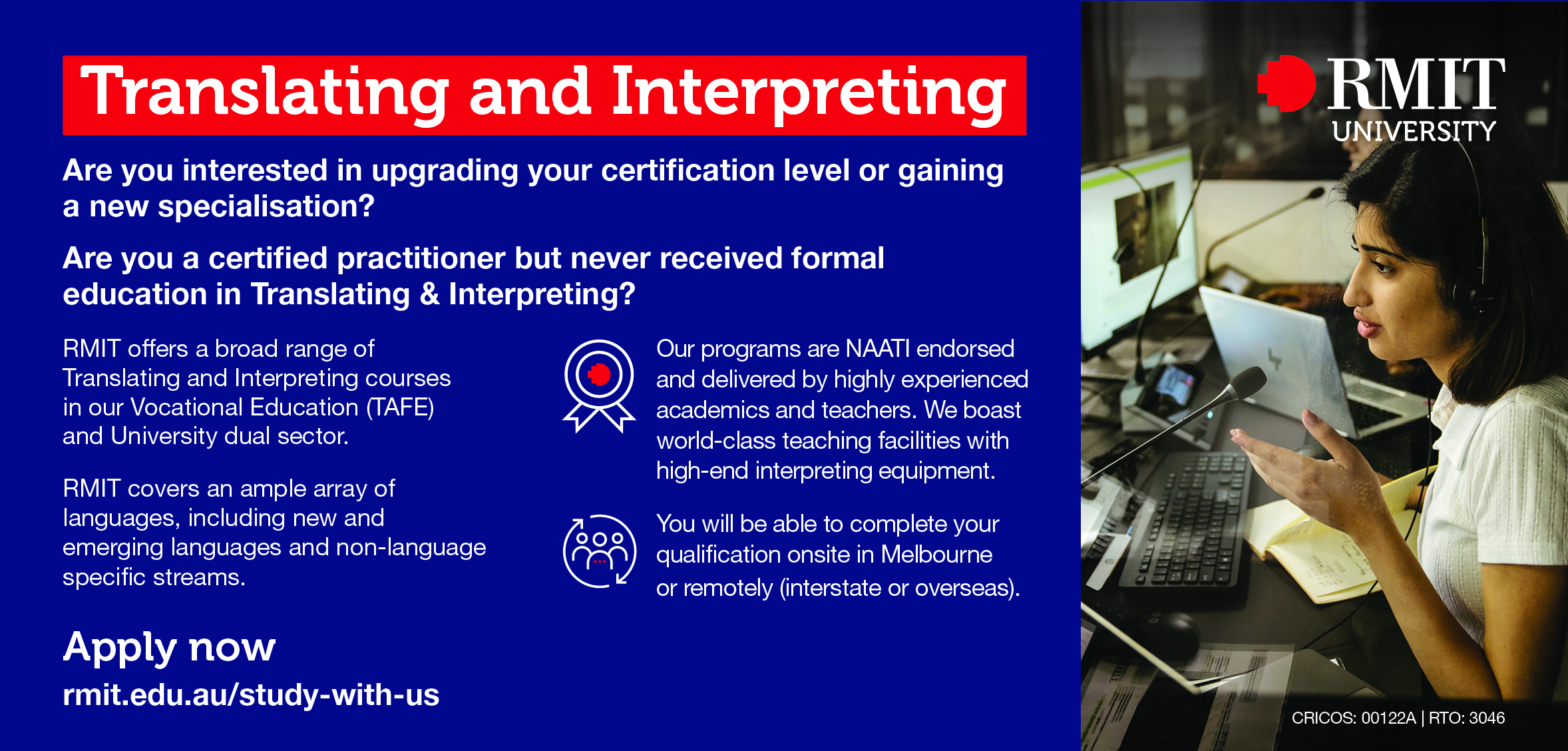
For the tenth interview in this series on the various roles taken on within AUSIT by its members, we talk with Marita Quaglio, a member of the Ethics and Professional Practice Committee.
Hours per week:
1 to 3
Voluntary?
Yes
AUSIT member for:
23 years
Time in this role:
5 years
Other AUSIT roles (past and/or present): none
The Committee aims to raise awareness of the AUSIT Code of Ethics and promote ethical conduct amongst practitioners, as well as investigate complaints of alleged unethical behaviour from and by AUSIT members. It also undertakes tasks such as developing policy and procedure documents to guide the work of AUSIT’s re-formed Board of Professional Conduct (which prompted one of the recent amendments to the AUSIT Constitution, so that the new procedures are in line with it), and we’ve done a lot of work towards updating the AUSIT Best Practices for The Translation of Official and Legal Documents. The Committee meets bi-monthly, and members give time between meetings according to their skills, interests and availability.
I’m happy to say that during my time as a member, allegations of unethical behaviour by AUSIT members have been few. One such involved an alleged breach of the principle of Professional Solidarity. This was investigated and resolved in the negative, as the conduct referred to occurred in the private sphere, and could in no way be interpreted as bringing the T&I profession into disrepute. The Committee also sometimes receives requests for guidance and advice on ethical issues and questions. These can range from suspicion that a personal document presented for translation may not be genuine, to how interpreters living and/or working in small communities can best navigate encountering – in the course of their work – people with whom they are familiar.
Living and working in regional Australia, I’ve had limited opportunity to connect with other AUSIT members or contribute to the organisation’s work. Having been a member for many years, I decided that it was time. I seized the opportunity to participate in the work of the E&PP Committee, as I feel strongly about the critical importance of ethical conduct in our profession. And nowadays, of course, with meetings happening by Zoom, it’s much easier for members living all over Australia to participate. The current Committee is composed of members who bring a wide variety of experience and skills, and there is room for all to contribute. The main thing, obviously, is a thorough understanding of – and commitment to the principles of – the AUSIT Code of Ethics and Code of Conduct.
The Committee liaises with and provides advice to members of the AUSIT National Council, language service providers, AUSIT’s educational affiliates, other organisations and individuals who work with T/Is, AUSIT members, students, the general public … and, of course, the editors of In Touch.
Working with this committed, experienced and skilful team is rewarding. You can also learn a lot by participating in the valuable work of the Committee. I certainly feel privileged to play a part, and encourage members to consider this role as your way of contributing to AUSIT.
ADVERTISEMENT:



